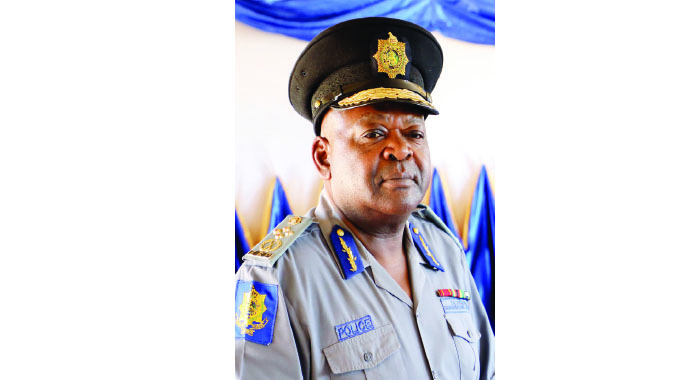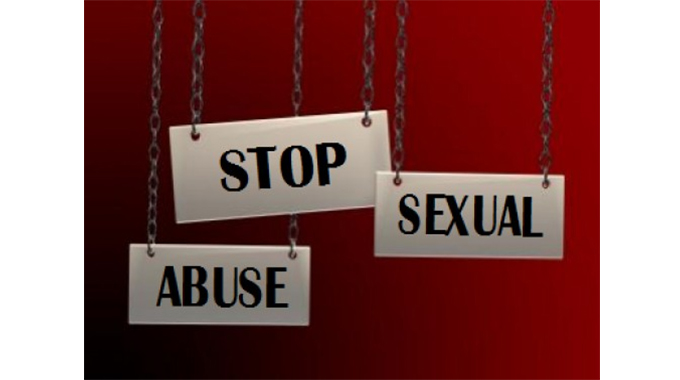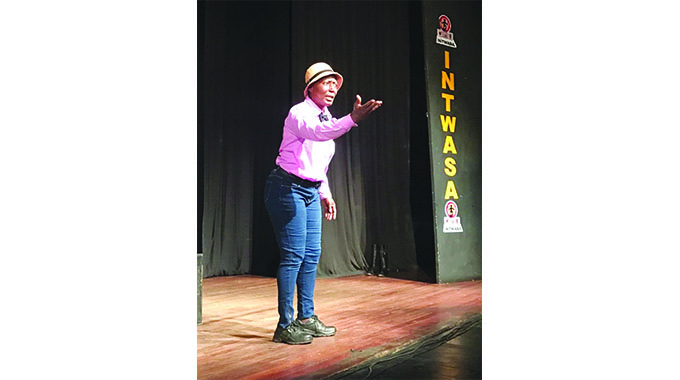ZRP lifts Zimbabwean flag very high

Masimba Mavaza
The first pillar of the UN Guiding Principles on Human Rights (hereinafter UN Guiding Principles) underscores that the duty to protect human rights lies with the State.
Assessment of police effectiveness, efficiency and legitimacy depends on police effectiveness, efficiency and legitimacy. The Zimbabwe Republic Police is coping well with increasingly complex and changing demands in the face of tighter resources. Under the leadership of President Emmerson Dambudzo Mnangagwa, the Police have reformed beyond first world standard.
President Mnangagwa has become one of the first African presidents to become an agent of change and a calabash of humanity.
The police under Commissioner General Matanga has embraced the requirements of international law, which nations are obligated to respect, protect and fulfil human rights.
In sync with international standards the ZRP under Comm Gen Matanga realises that they must protect against human rights abuse within their territory and/or jurisdiction by third parties, including business enterprises. This requires taking appropriate steps to prevent, investigate punish and redress such abuse through effective policies, legislation, regulations and adjudication.
Police Commissioner General Matanga has aligned the ZRP working policies with the UN Guiding Principle 1.
In practice this means that states have the obligation to take measures to ensure that enterprises respect human rights. Past abuses must be investigated, the responsible parties must be called to account and they must provide redress for the victims. In addition to the State’s duty to protect human rights.
The cornerstone for the protection of human rights in Zimbabwe is the Zimbabwe constitution, the Basic Law, in which the State affirms “inviolable and inalienable human rights as the basis of every community.” Building on this foundation, Zimbabwe thanks to President Mnangagwa has ratified numerous international human rights conventions and transposed them into national legislation. These include the International Covenant on Civil and Political Rights, most of the conventions of the International Labour Organisation.
Under President Mnangagwa Zimbabwe is advancing the implementation of the UN Guiding Principles.
Because Zimbabwe respects the rule of law, through the guidance of Com Gen Matanga the ZRP has achieved effectiveness in preventing and investigating crime, protecting vulnerable people and tackling serious organised crime.
The ZRP has again shown great efficiency in how a force manages demand and plans for the future; and how legitimately a force treats the public, how ethically it behaves and how it treats its workforce.
This has seen great success in the ZRP policing and fighting crime. As a result on August 8, 2021, the ZRP arrested Nomore Hove, Brian Nkomo, Mthokozisi Moyo and Nkosilathi Ncube after a shootout in Bulawayo with one of the suspects Anorld Mpofu dying in the exchange of fire . The robbers had raided a company in Belmont, Bulawayo.
Another robbery at Choppies Supermarket Parklands Shopping Centre, another at Chatham Road, Belmont and lastly at a house along Fourwinds, Bulawayo.
Because of the police efficiency a total of US$265 and R1 635 374 and millions of Zimbabwe dollars which was stolen by this gang was recovered. Previously in July 2021, Richard Mutanga, Peter Mushipe and Valentine Mutasa were arrested after a shootout with detectives in Harare. One suspect, Benjamin Craig Musasa died in the shoot out. This nature of crime and disrespect of the police force in Zimbabwe is foreign to society. But the ZRP are containing the criminals and bringing peace in homes and our streets.
By arresting these robbers the police cleared seven cases which include the raid at Gateway High School where US$250 000 was stolen, US$70 000 from a prominent businessman in Muzari suburb, Chinhoyi, UZ Farm compound where US$20 000 was taken, and a raid on a Beatrice farmer where US$19 800 was stolen. The action of the Zimbabwe Republic Police has endorsed dignity and humanity in the society and nation at large.
In a show of lack of respect to the police four armed robbery suspects exchanged fire with police on August 9, in Bulawayo leading to the death of four and unfortunate death of Constable Gibson Tafara Madzimure as the criminals wanted to rob a forex dealer. Some of the suspects had come from SA. So the ZRP is dealing with sophisticated cross border criminals. Yes, this is real life the police officers are prepared to lay down their lives in defence of the nation.
Last week the ZRP arrested Thubelile Ncube and Sondo Sibanda for armed robbery cases committed in Plumtree and Emganwini and Parklands, Bulawayo. A total of US$1 550, Botswana pula 1 300, South Africa rand 3 400 and Z$38 000 had been robbed from people. The gang was also involved in a robbery in Sunninghill, Bulawayo where they took away US$1 150.
Zimbabwe is not spared from murder cases which are steadily rising.
In their mandate to protect the people of Zimbabwe, the ZRP has arrested Admire Tasaranago and Talent Meza for killing a mine manager Robert James Chilcott after they were caught stealing gold ore at Seigneury Mine in Saruwe, Mashonaland West on September 15, 2021.
The vehicle used to carry the ore has been recovered while efforts to arrest the remaining over 20 suspects are underway. On September 14, police arrested a security guard Campion Marowa for shooting dead a Zupco bus conductor Joyce Kazhumha while trying to rob her using a company pistol aboard a Zupco bus in Dzivaresekwa. Without the help of present technology which is in the First World the ZRP solved this murder case within 24 hours.
It is very clear that misconceptions about the ZRP undermine humanitarian approaches and crime prevention being achieved by the disciplined police service.
It has taken only three years for Government of Zimbabwe under President Mnangagwa to show that they have responsibilities for the assistance and protection of the society. The Zimbabwe Republic Police helped to articulate the concept of sovereignty as responsibility in order to allay fears by the international governments that Zimbabwe is a repressive government.
The international community to date has shown itself unwilling and unable to robustly support Zimbabwe in the way the police have functioned and delivered peace to the nation. In Zimbabwe the police are a tool to raise awareness to the obligation we all have when it comes to protection. It should have the support of everyone here.
The Zimbabwe Republic Police as the arm of Government realises that the first responsibility of government in a democratic society is to protect and safeguard the lives of its citizens. . . . It is essential to the preservation of democracy, and it is the duty of the court to do all it can to respect and uphold that principle. To Zimbabwe Republic Police stands tall. The duty to protect is the responsibility of the police to protect others from foreseeable harm. As
President Mnangagwa attends several international commitments he does so knowing very well that he is an example of democracy.
Democracy is defined by broad values involving participation and formal rules about procedures such as elections and maintaining law and order. That is true for the police, the agency of government that citizens are most likely to see and have contact with.
Police are a central element of a democratic society. Indeed one element in defining such a society is a police force that is subject to the rule of law, rather than the wishes of a powerful leader or party. The police which can intervene in the life of citizens only under limited and carefully controlled circumstances and under Comm Gen Matanga the police is now publicly accountable.
It is a myth that all that stands between total chaos and social order is the police. Social order has multiple sources. These include socialisation to norms, a desire to have others think well of us, reciprocity, self-defense and the design of the physical environment. Yet police are an important factor. Their importance increases with the heterogeneity and size of a society.
A defining characteristic of police is their mandate to legally use force and to deprive citizens of their liberty when it is necessary to so. This power is bound to generate opposition from those who are subject to it. It also offers great temptations for abuse. Law enforcement requires a delicate balancing act. The conflicts between liberty and order receive their purest expression in considerations of democratic policing. The Zimbabwe Republic Police has taken great strides to transform to a service and not a force.
It is ironic that police are both a major support and a major threat to a democratic society. Zimbabwean police operates under the rule of law. They protect democracy by their example of respect for the law and by suppressing crime. Zimbabwe Republic Police are moral, as well as legal, actors.
But apart from the rule of law and public accountability, the police power to use force, engage in summary punishment, use covert surveillance, and to stop, search and arrest citizens, this is not a sign of bad policing but the rule of the trade. The policing of crime and politics merge and political dissent is not a crime.
As President Mnangagwa attends the UN Climate Change Conference in Scotland next month, he marches in as a true example of democracy. Zimbabwe now has a democratic space patrolled by the democratic police.
The Police in Zimbabwe will never arrest a person for being a member of the opposition. Crime has no political party.
If you commit a crime the police will arrest you regardless of which party you belong to. The fake stories created by the opposition are self-serving and must never be listened to. The planned demonstrations by the MDC in the UK against the Zimbabwe Police are just lipstick on pigs. The Zimbabwe Republic Police have lifted the Zimbabwean flag very high. We are the champions of democracy. Comm Gen Matanga has lived beyond expectations in the police.
*Masimba Mavaza can be reached on [email protected] industrial societies use police to control crime and to contribute to public order including mediating and arbitrating disputes, regulating traffic and helping in emergencies.











Comments